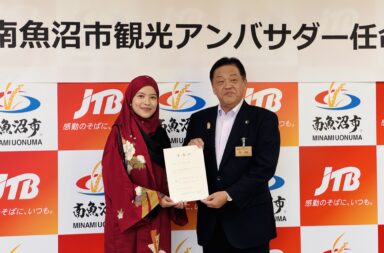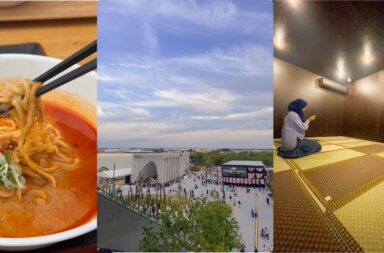How Japan’s Muslim Community Welcomes Ramadan with Open Arms
Ramadan, the holy month of fasting, reflection, and community for Muslims worldwide, is uniquely celebrated across different cultures.
In Japan, a country known for its rich traditions and technological advancements, the Muslim community, though a minority, has carved out a niche for itself, especially in the way it observes Iftar—the meal eaten by Muslims after sunset during Ramadan.
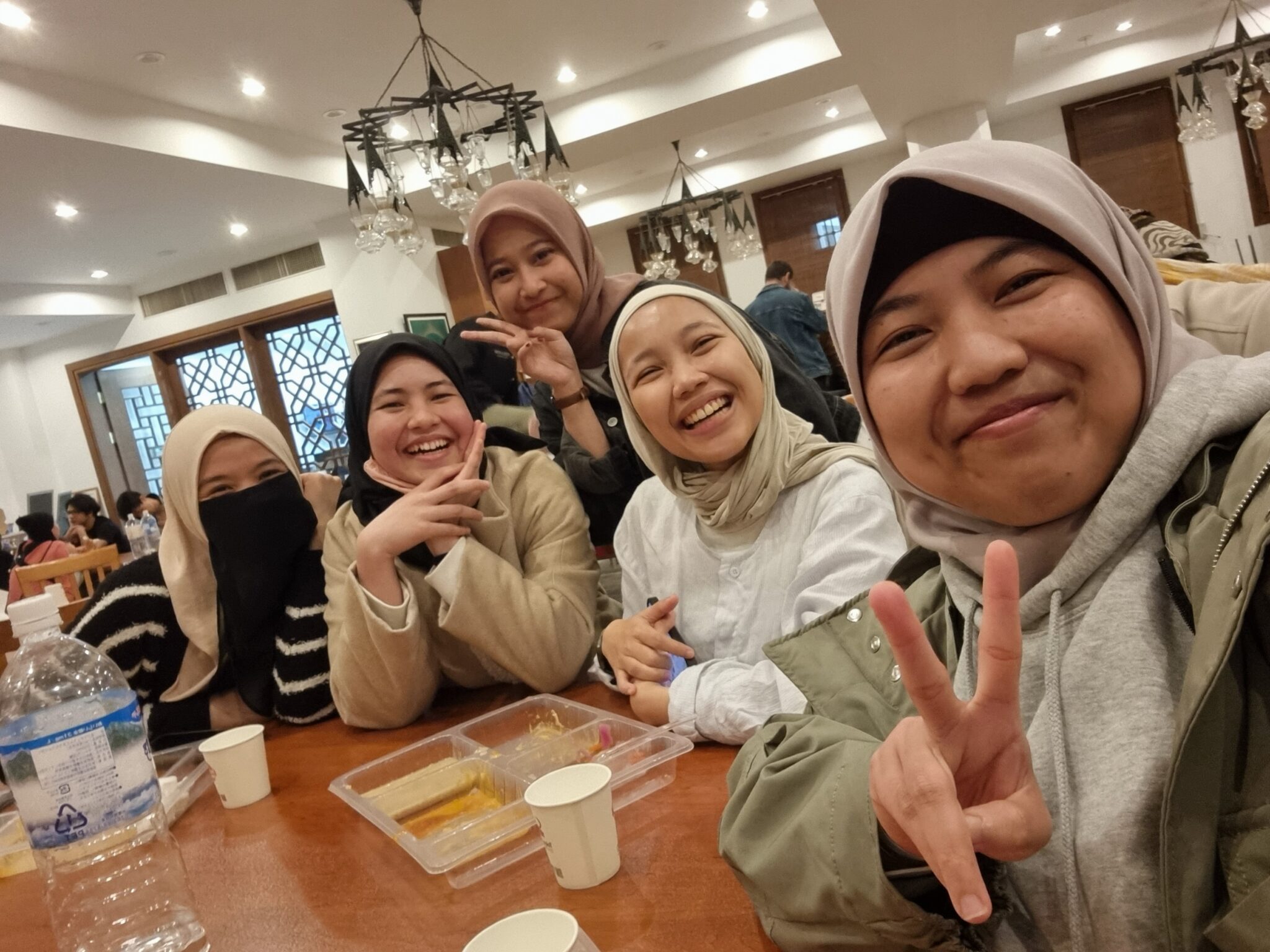
This article delves into the heartwarming practices surrounding Iftar in two of Tokyo’s mosques, revealing a side of Japan many outside the country may not know.
Diverse Cultures at the Iftar Table
At Tokyo’s Camii Mosque and Masjid Dar Al-Arqam in Asakusa, Iftar is more than just the breaking of a day’s fast; it’s a vibrant showcase of cultural unity and diversity.
Managed primarily by foreign residents, these mosques serve up a delectable array of international cuisines at Iftar, reflecting the diverse origins of the Muslim community in Japan.
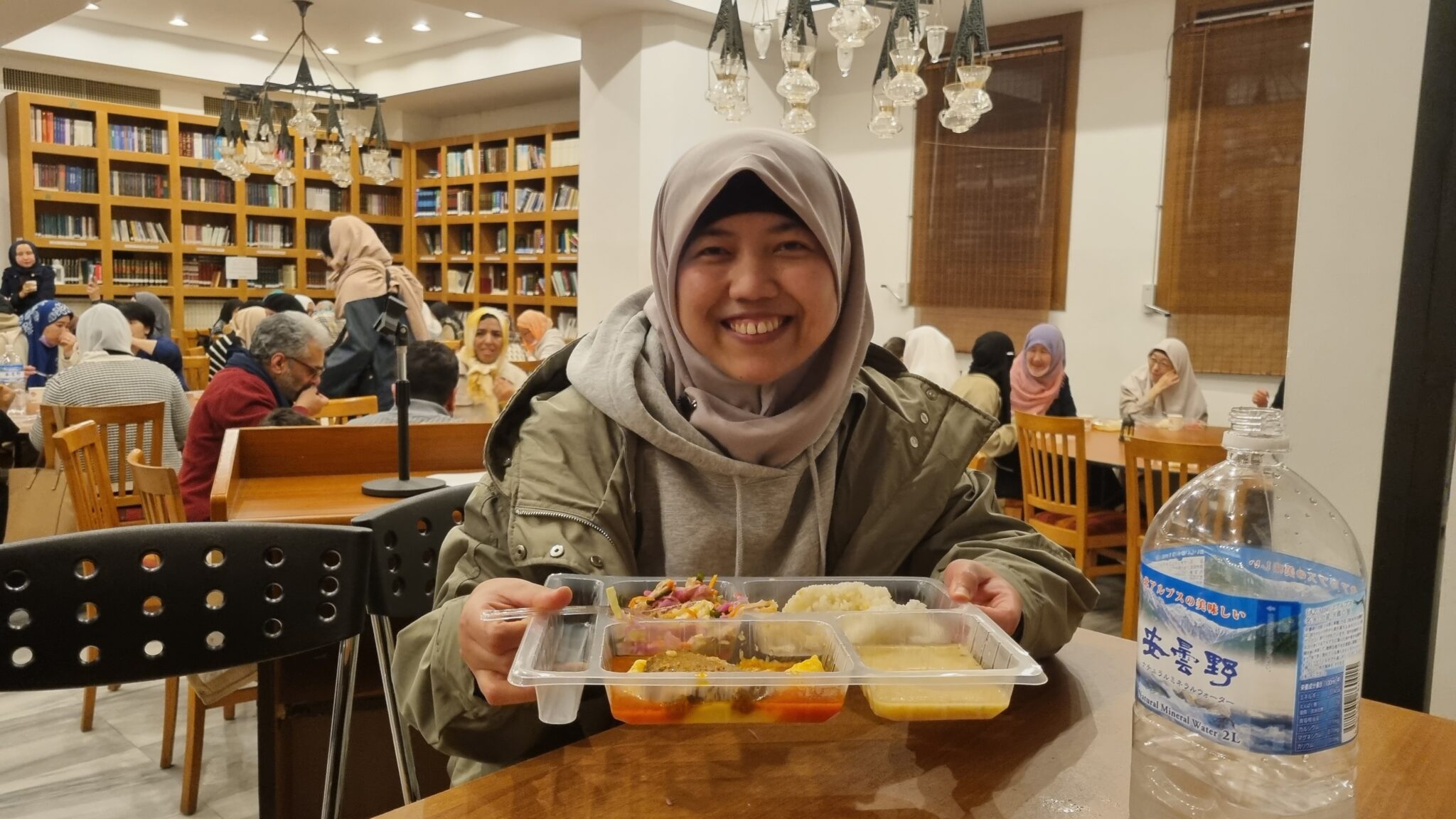
Iftar meal at Tokyo Camii Mosque

Iftar meal at Masjid Asakusa
From Middle Eastern delicacies to South Asian treats, the Iftar meal here is a culinary journey that brings together Muslims from various backgrounds, creating a unique harmony of flavors and traditions.
Welcoming All with Open Hearts
What sets the Iftar celebrations in Japan apart is the inclusivity and warmth extended not just to Muslims but to non-Muslim visitors as well.
Tokyo Camii and Masjid Dar Al-Arqam Asakusa open their doors to everyone interested in participating in the Iftar meal, offering a rare opportunity for non-Muslims to immerse themselves in Islamic culture and practices.
This openness fosters a deeper understanding and mutual respect among Japan’s diverse population.
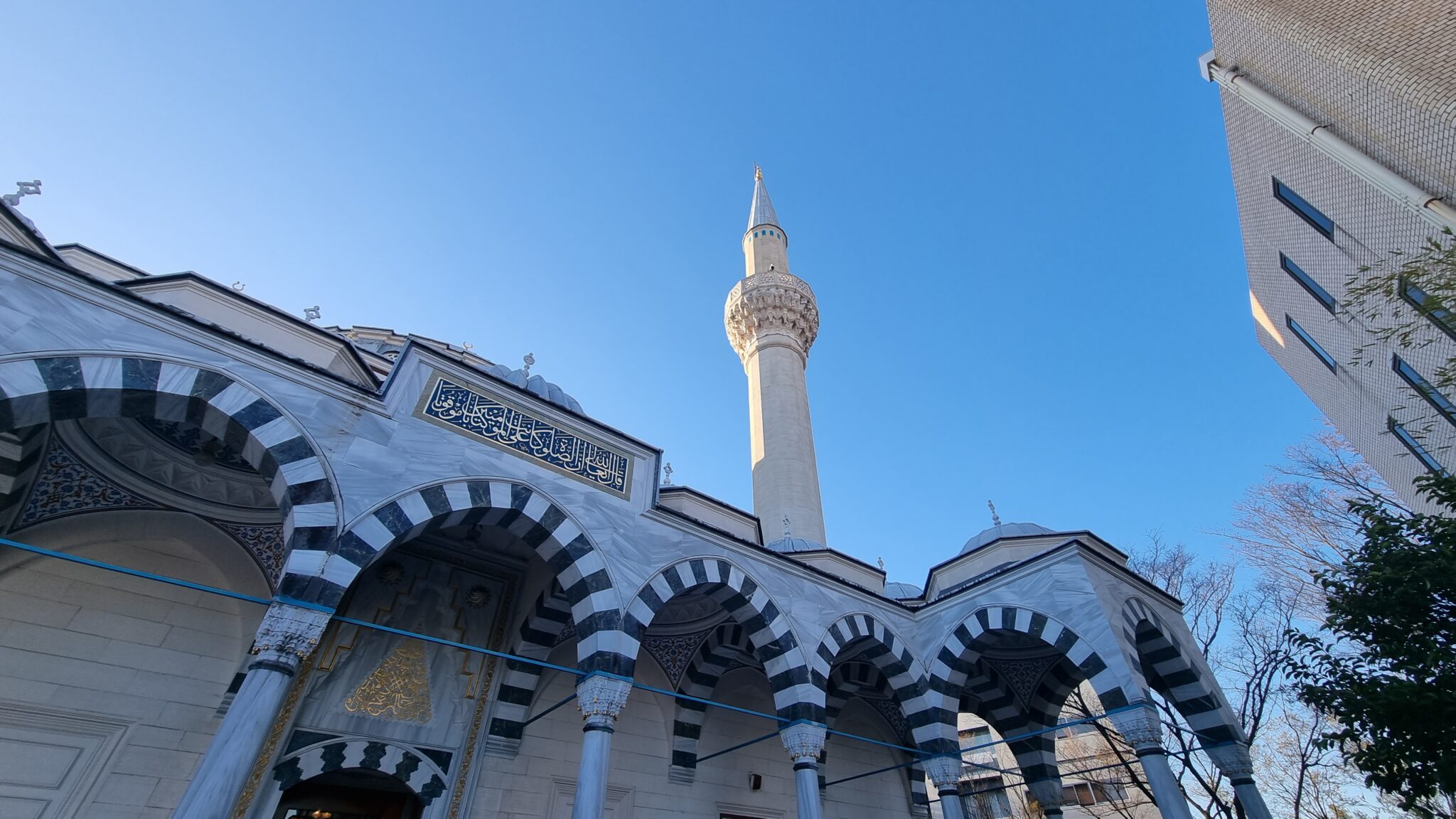
Tokyo Camii Mosque
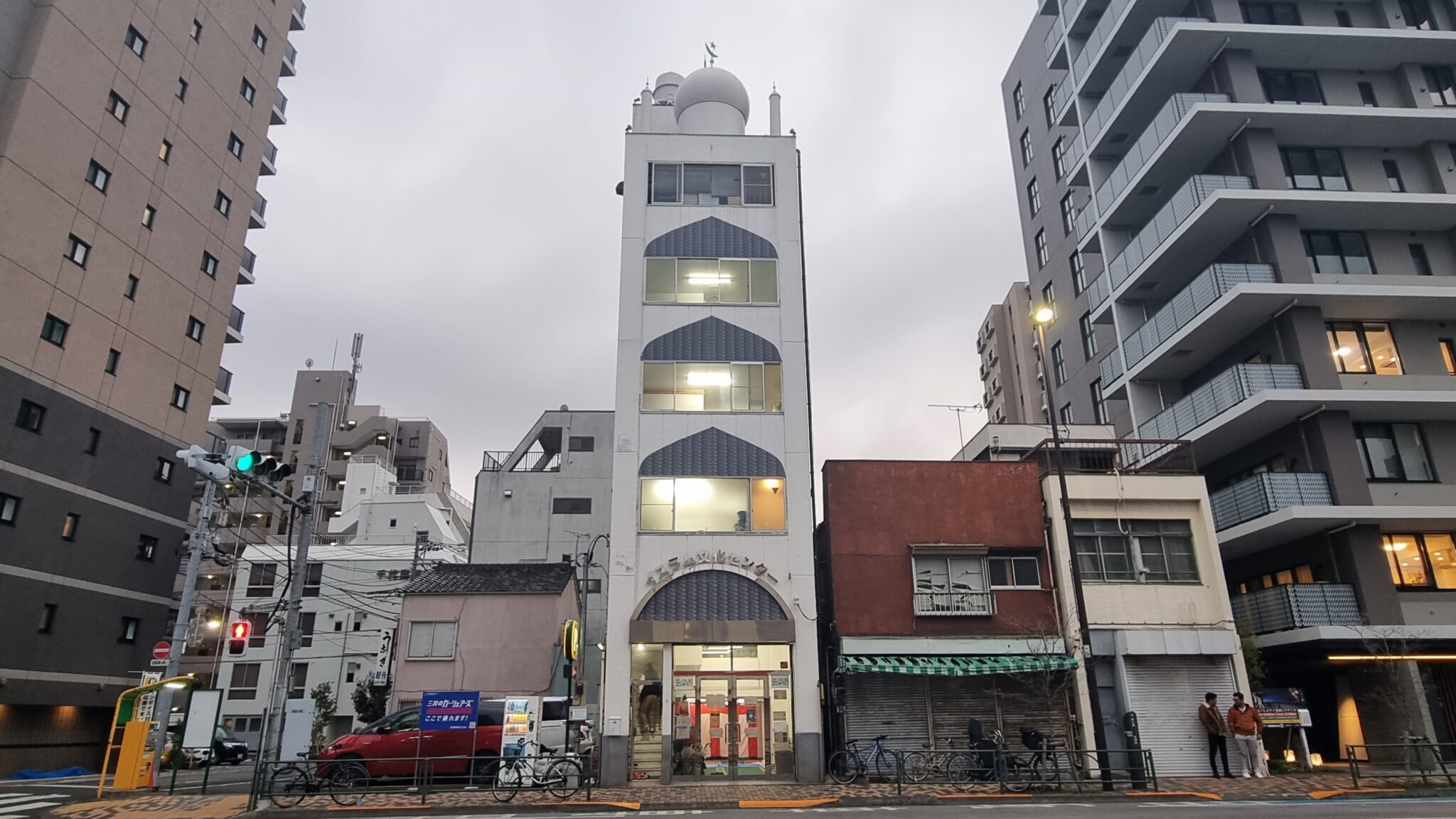
Masjid Dar Al-Arqam Asakusa
The Iftar event commences with the traditional takjil, consisting of dates and water, followed by the Maghrib prayer.
At Tokyo Camii, prayers are conducted on the second floor, with the Iftar meal served in a multifunction hall on the first floor.
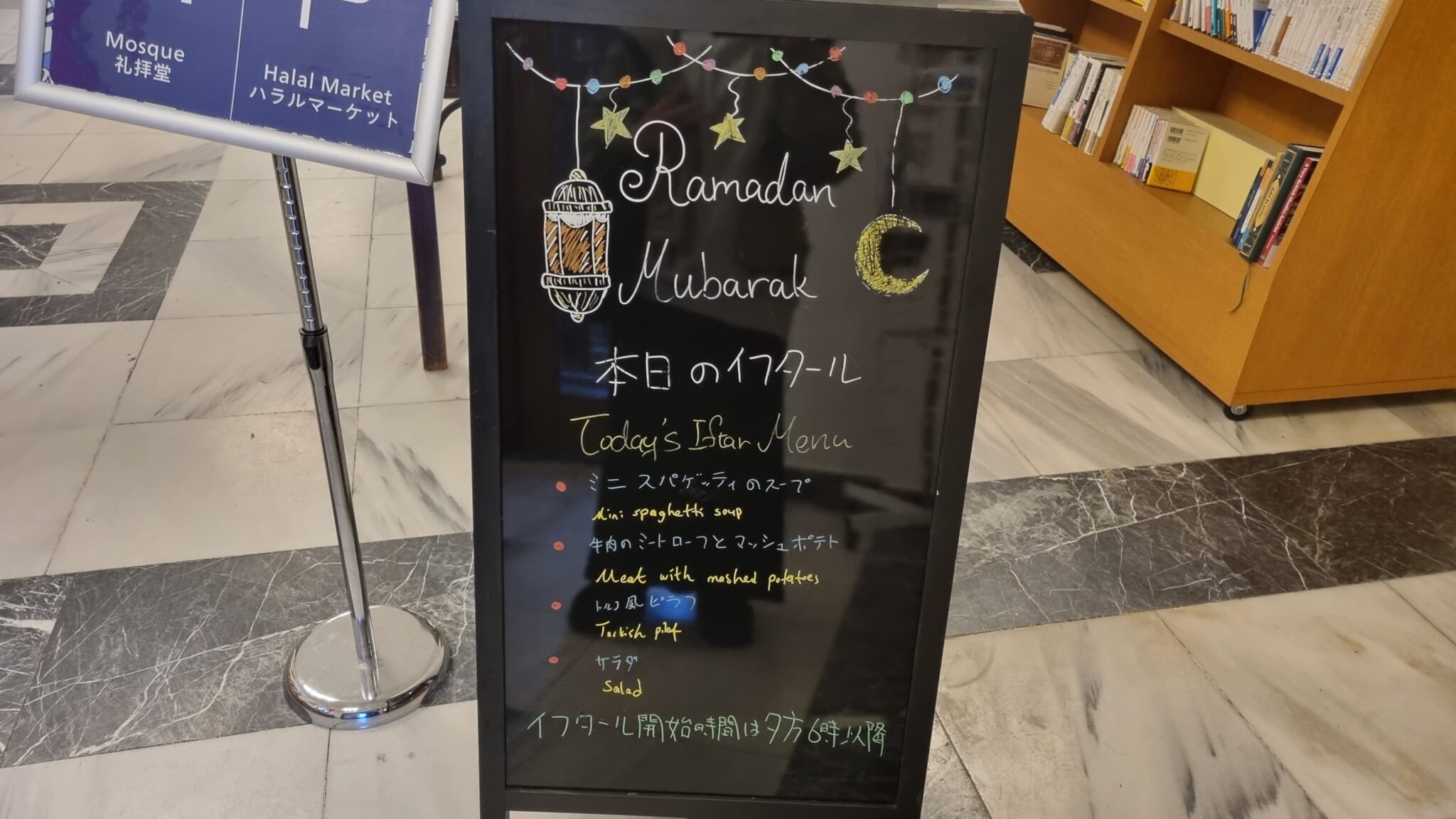
Iftar menu at Tokyo Camii (may vary daily or according to stock)
The organization of the event is meticulous, ensuring a smooth flow and a comfortable experience for all attendees.
Men and women queue separately to receive their meals, with men starting from an inner staircase and women from the mosque’s main entrance.
As the mosques encourage visitors to make space for others once their meal is complete, the spirit of giving and sharing is palpable.
While Tokyo Camii hosts Iftar for everyone throughout Ramadan, Masjid Dar Al-Arqam in Asakusa prioritizes local Muslims but also designates special days for non-Muslim visitors, ensuring everyone has the chance to experience this beautiful tradition.
See Also
Ramadan in Japan; Unique and Surprising Things Muslim Residents Experienced
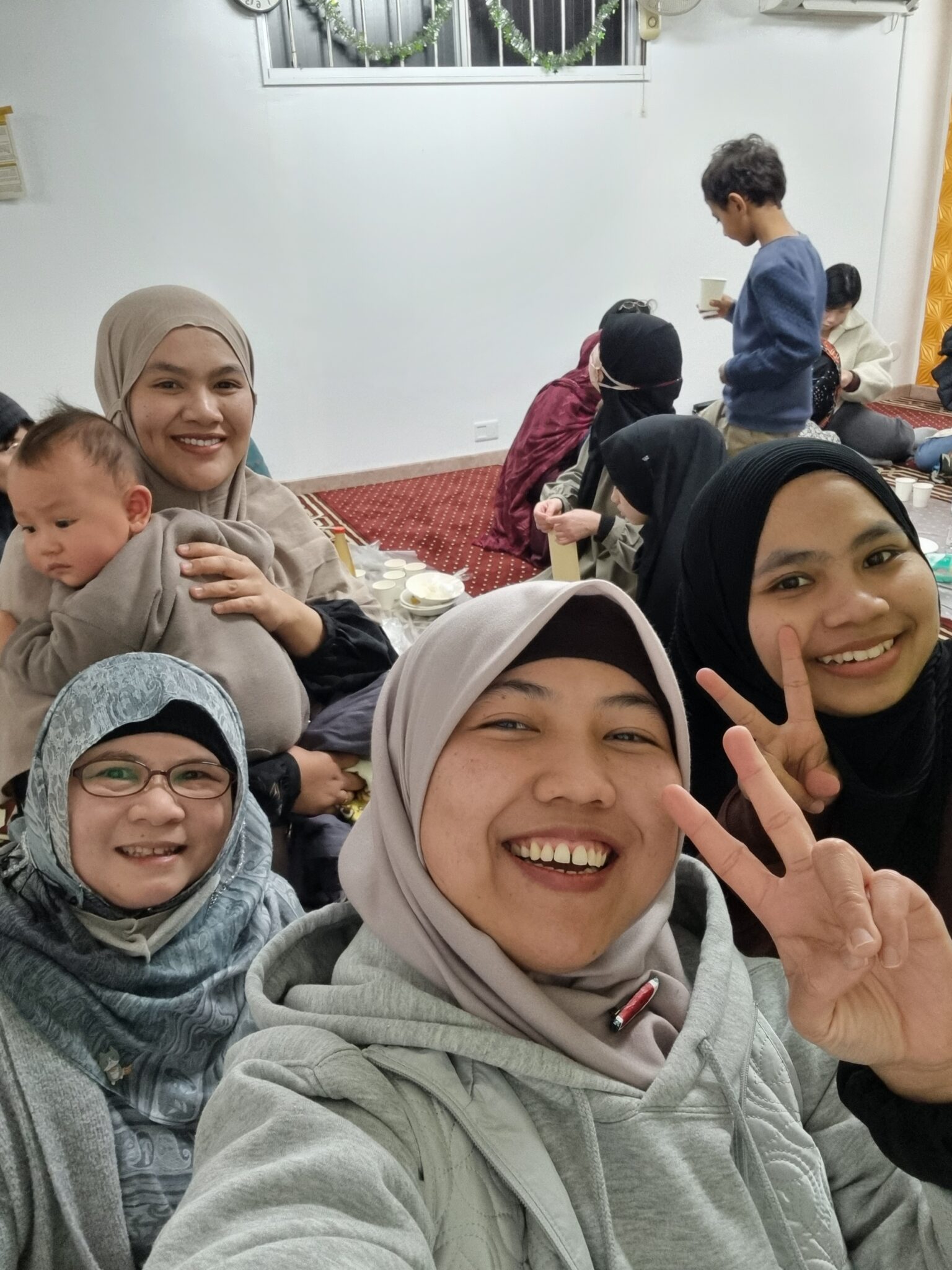
In a world where differences often divide, the Iftar celebrations in Japan exemplify how traditions can unite, bringing people of all backgrounds together in celebration and contemplation.
It’s a lesson in unity and diversity that resonates well beyond the borders of Japan, offering hope and inspiration to us all.
